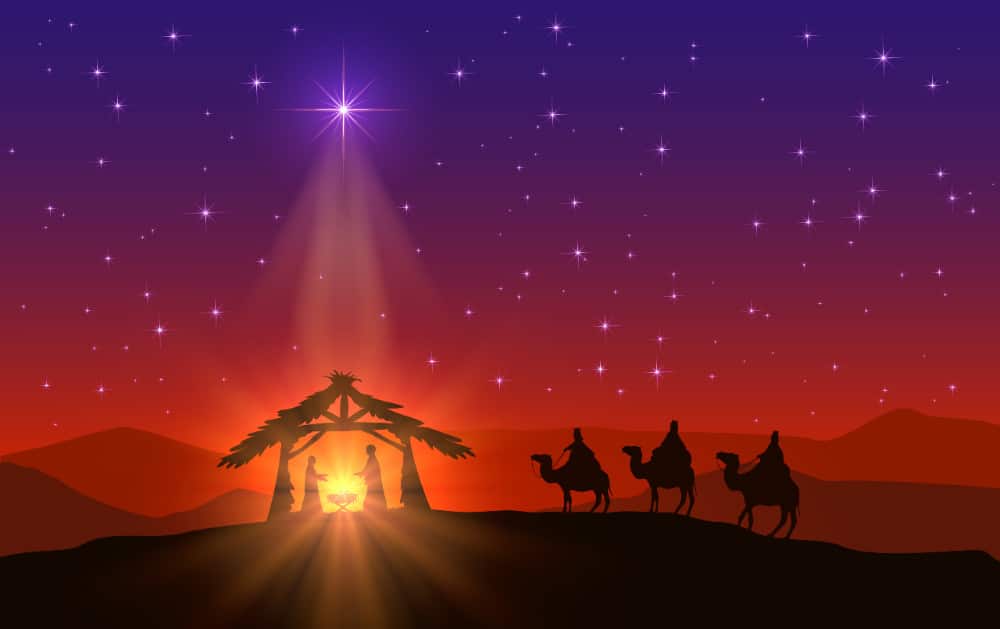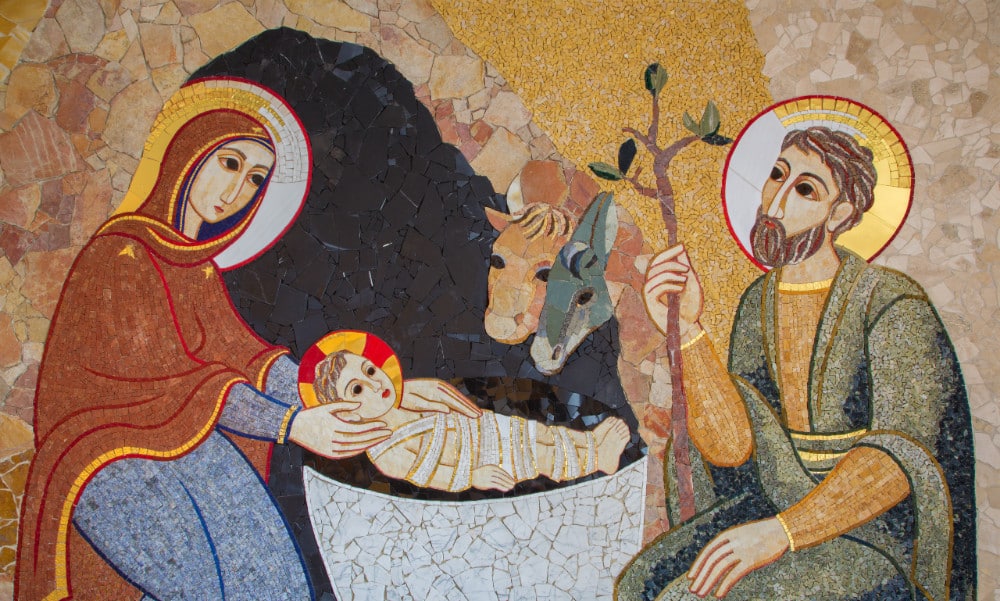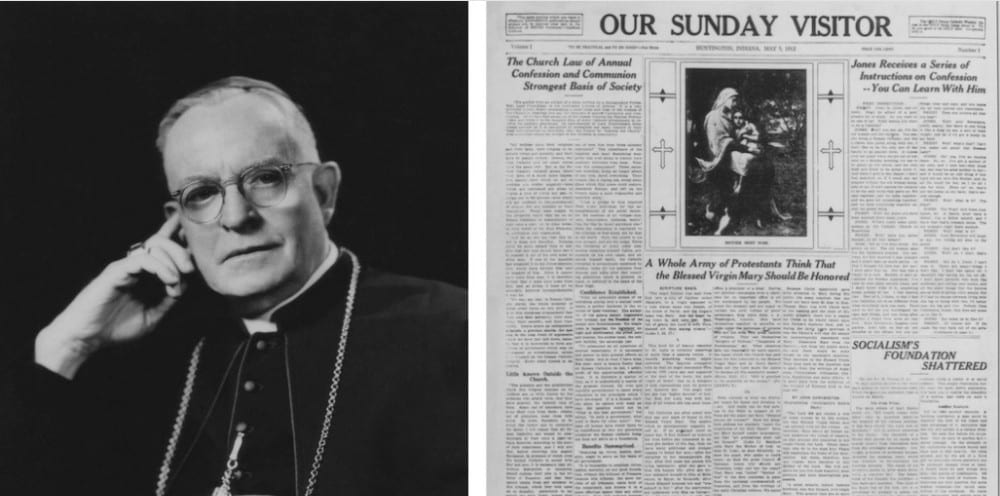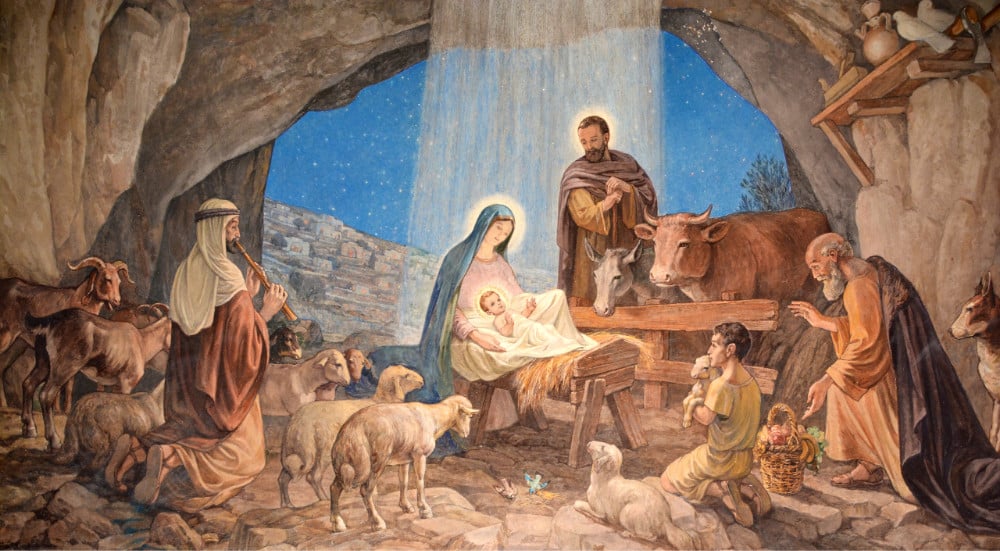Talk about losing sight of the forest because of counting the trees. Recently, a radio program, devoted to serious science, spent an hour speculating about the star that guided the Wise Men to Bethlehem, where they adored the newborn Lord Jesus.
Was the star a comet, racing through space at that moment in history? Was it a star, exploding in some galactic super-event? Was it the planet Jupiter? Or Saturn?
Hearing the story of the Epiphany easily prompts wandering into the weeds about the details of the story. Questions about particulars are many.
For two millennia, many questions have intrigued Christians. Who were the visitors? Some people have surmised that they were kings because they obviously were of means and had the personal independence to undertake such a daunting trip. Others say that they were “wise men,” or scholars, because in that day, when astronomy was very important in formal learning, they knew the position and movement of bodies in the sky.
The Gospel, in most modern English translations, refers to them as “Magi.” The Vulgate, St. Jerome’s Latin rendering of the Bible, issued in 382 A.D., mentions “magi ab oriente,” Magi from the East. This presents another question: Who, and what, were “Magi”?
Where did they begin their journey? The Gospel says the visitors came from “the east.” Geography has changed dramatically in that part of the world since the birth of Christ, but east was east. Was it today’s Syria or even Iran?
How many were in their party? Tradition, but only tradition, says three, presumed because three gifts were presented to the baby Jesus — gold, frankincense and myrrh.
Questions always have surrounded, and still surround, the story, as shown by the radio program about the star, but for a person wishing to find God, and to find a way to proceed through life, no question exists.
Whatever the questions, in the overall account of the trip of the Wise Men to Bethlehem, is one of the most powerful insights into God’s love, and into the deepest elements of human nature, provided in the Bible. It is no wonder that long has the feast of the Epiphany been so important in the Catholic calendar.
What is St. Matthew’s Gospel saying, setting the questions aside? Be the visitors royalty or scholars, they were human, no different from you or me. They wanted to know how best to live, what goals to set. They knew — and this is critical — that they did not have in themselves all the answers.
Tradition assumes they were wealthy since they brought valuable gifts. If indeed they were wealthy, their wealth offered no answer to their questions, no relief in their frustration. Finding the answer, and finding God, required their own thought and action, so they undertook a long journey, not knowing their exact destination. They were bold.
Almighty God, and this is important, guided them. He placed the “star,” whatever it was, in the sky to lead them. He warned them not to trust the devious Herod. They followed the star, of their own will, and heeded the warning. They listened to God.
Finally, their questions were answered, and their hopes fulfilled. They found everything when, arriving in Bethlehem, they discovered Jesus, “with Mary his mother” (Mt 2:11).
Forget the questions, fascinating as they may be. Matthew’s Gospel is not tantalizingly vague, riddled with questions to confuse readers. On the contrary, it is precise, direct, crisp and to the point. Humans, rich or poor, wherever they are, whatever their age, circumstance or condition, are limited. They never find all the answers on their own. Often, they are victims of the unprincipled, consumed by their own self-interest, such as was Herod, or of temptation to sin.
God does not leave them in the darkness. He guides them, in revelation, through the Church, to the answer to every question: Jesus, “with Mary his mother.”
Msgr. Owen. F. Campion is OSV’s chaplain.







